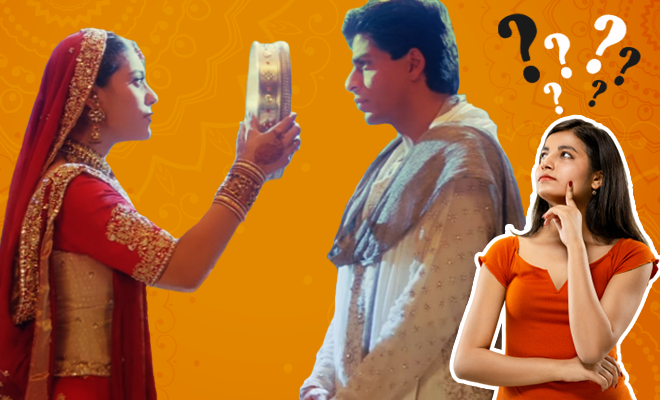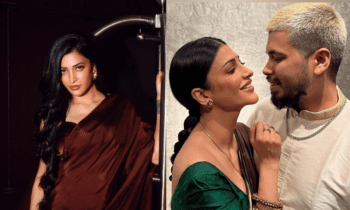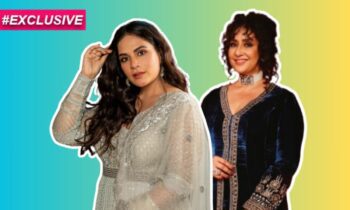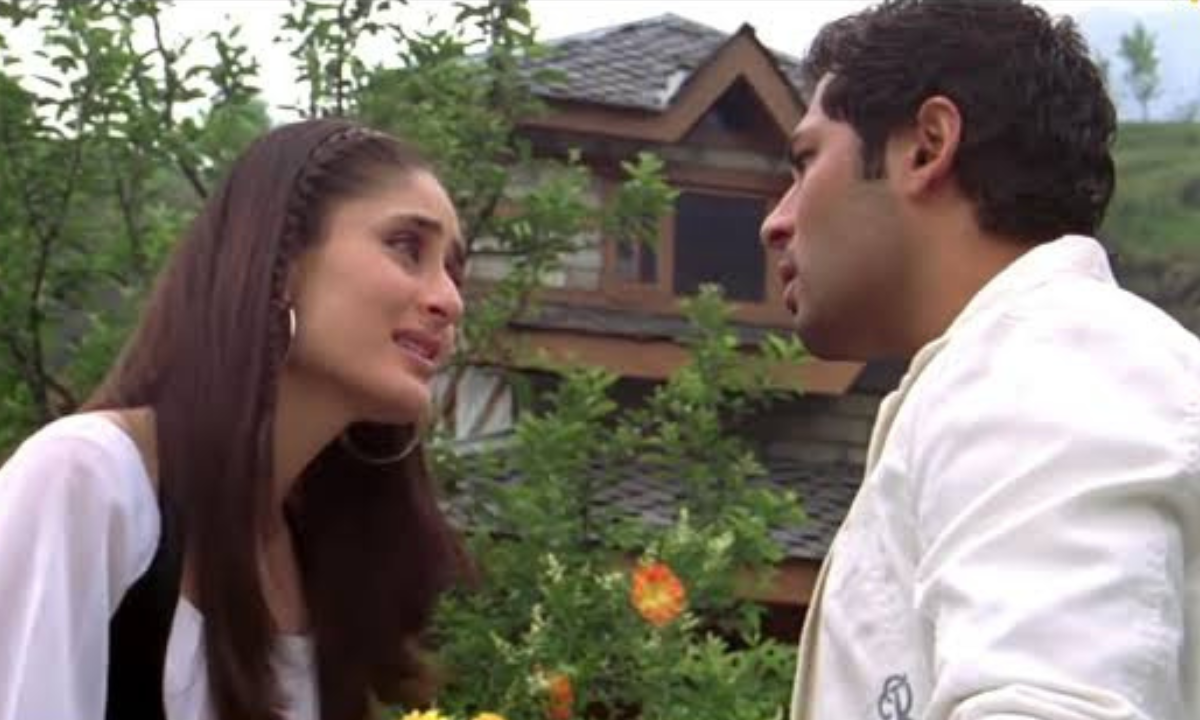Hauterfly Investigates Karwa Chauth: Millennials Are Changing The Narrative And Stepping Away From The Patriarchy

When I was a child, oblivious to the patriarchy plaguing our society, Karwa chauth used to really fascinate me. All the women in my extended family would dress up in outfits that I would probably feel overdressed in, even at my own wedding. A day before the celebratory day, they would go to the salon to pamper themselves and then get henna on their hands. It felt like it was the reward for putting yourself through fasting, not for your own health but for your husband’s long life.
Eventually, my own mother, who is a very progressive woman, stopped following Karwa chauth. In my nuclear family, with no pressure from the in-laws, my mom didn’t have the pressure to do something she didn’t believe in.
The story behind Karwa chauth is sweet, fascinating even. Yet, I highly doubt the effectiveness of my fasting on my husband’s health and long life. If anything, we are two bodies one soul. It’s almost like if I overeat, my husband will get fat. Two bodies, one soul, not the other way around!
Romanticising Karwa Chauth
Of course, the festival has been romanticised since its very inception. And there is nothing wrong with wanting and praying for your husband’s long life. It’s just weird when it is one-sided, and even more mind-boggling when you have to blackmail God by fasting every year. On top of it, really when it is one-sided, it disturbs the gender balance, which well, anyway is pretty skewed in our society. So it really is just inheriting traditions long after the time when Gods used to descend down to grant the wishes of us mortals simply because someone was fasting.
So while I don’t intend on fasting on Karwa Chauth, I wondered if other millennials do. I remember sitting at the lunch table in my previous workplace, and all of us were discussing this festival and its traditions. None of us, except one girl was keen on fasting. She said it was her choice and it’s got nothing to do with gender bias. She wanted to do it, for love, for the person she married and to make him feel special.
I do understand her sentiment and I am sure it resonates with many millennials out there. However, I believe it is due to the years of social conditioning that many of us believe Karwa Chauth is okay. Sometimes, it comes from our convenient thought process that refuses to empathise with women who didn’t have a choice back then and one that several women don’t have even today. So in our own comfortable seats, let’s not forget that our mothers and grandmothers fought to not let their loves be gauged by their fasting. In fact, women back then were often blamed by society if their partners died for being bad luck or just a bad wife. Oh wait, I almost forgot what happened with Rhea Chakraborty – this is still happening.
“We are the last of the bloody liberals left. Today, girls are doing Karva Chauth! C’mon, that’s what we fought against,” Ratna Pathak Shah had said in one of her interviews.
“It’s important for me to celebrate #karvachauth as i find it very romantic. How my husband keeps asking me what I want and how I start looking for beautiful bangles and tow rings .. it’s the only festival when I take out time for Mehendi. It’s a day when we all friends get together and see the moon god and make memories. I don’t see any reason why it should not be celebrated after all what are festivals for? To come and rejoice together,” Anamika Sureka, Founder of Wise She wrote in her social media post.
Millennials are changing the narrative of Karwa Chauth
Nea Jain, a young girl hailing from Indore and now married in Mumbai says, “I think it’s a beautiful festival…girls these days think that why should girls stay hungry n all but I think it’s a personal choice…you do it out of love and not out of obligations.”
Garima Kapoor, a Delhi-based entrepreneur believes millennials are embracing it sans the patriarchy. “Karwa chauth like many other festivals in India has deep roots in patriarchy, but I believe for millennials it’s just a loving gesture, for a lot of women in our generation this is no longer a compulsion but just something that stems out of love and the sensitive traditions around this festival. We see a lot of men fasting with their partners/wives too!”
She added that she has seen even same-sex couples do it. “Today we also see a lot of queer couples following this festival for the sentiment behind it. So it is looked at more of a personal sentiment towards your partner rather than a barbaric patriarchal tradition, just we see a lot of millennial folks embracing it,” Kapoor explained.
I see a resemblance in pattern with how millennials are going back to arranged marriages. In the 90s and even early 2000s, fighting to get married to your lover was a common theme in Bollywood. But in the more progressive sections of our society, the concept of arranged marriage has evolved. It is no longer getting dolled up and exhibited in front of prospective grooms. We have a lot of say and we are choosing our own partners, even in the arranged setup. Karwa Chauth too, in the progressive culture isn’t about patriarchy. The narrative has changed – both men and women are doing it, same-sex couples are doing it and if you don’t want to, you don’t have to.
Millennials, a curious and contrarian lot, don’t see Karwa Chauth for what it used to be. We don’t think it is going to help our husbands live longer and we do not buy the notion that we are obligated to fast. Yet, the romanticism surrounding the festival is so deeply ingrained in us that we see it as a way of affection and love.
Millennials don’t think it fits in their love language anymore
However, while some millennials are embracing Karwa Chauth while changing its narrative, some of us are just steering away from it. Alisha Nagar, a 29-year-old IT professional fasted on Karwa Chauth in the first couple of years of her marriage. But today, she decided to give it a miss. “I know women used to (or still) do it for their husband’s long life. But I don’t believe in it. Honestly, I don’t even know much about it. I did it earlier for love; I found it immensely romantic. And my husband and I did those cheesy things of going to the terrace and breaking the fast with him feeding me. Then we’d go out on a dinner date and we’d just be all romantic because we celebrated a couple-y ritual that has long been told us is a sign of love.”
She further adds, “I always romanticised marriage and this was just a way for me to feel very married. But I understand that we’ve just been raised that way to believe that this is romantic. But you know what is truly romantic? When my husband and I take care of each other in the little and big ways we do. Fasting is just inconvenient and it isn’t my thing!”
A woman under anonymity said she did it in the initial two years because of her in-laws. “My in-laws love Indian traditions even though we don’t live in India. So they are a little sentimental about Indian festivals including Karwa Chauth. When I first got married, I realised that I will have to pick my battles and give them time to warm up to me before I go announcing my contrasting views. Plus, you’re the center of attention and most aunties will judge you for not fasting, they just assume you probably don’t love your husband. It’s wrong and once the vultures were away, I let the façade go and stop fasting.”
ALSO READ: Karwa Chauth- Themed Mehendi Designs You’ll Love
Meet the progressive side of Karwa Chauth
I like the changing narrative of Karwa Chauth, especially because realistically speaking we know it will not cease to exist completely. I especially like the narrative in which people fast and celebrate karwa chauth irrespective of gender. Husbands can do it for the wives too. In fact, why make it heteronormative? Same-sex couples too are doing it and it’s amazing. Just observing it as a fun ritual is what we need this festival to be and not a way to force patriarchy on us.
Alisha Nagar said last year her friends still celebrated the festival. The couples met on the terrace and each partner prayed for the other sans the fasting. Millennials are rational and it is this ability to pick and choose the bits of traditions that make sense to you that makes us progressive. Because perceptions will always vary but your ability to ask questions and not conform blindly to cultural norms will make the progress happen.
So while there are progressive ways to keep the spirit of Karwa Chauth alive, women who have no choice but fast for their husbands are living on the patriarchal side of the fence. We can confidently say Karwa Chauth is not a patriarchal tradition only when it is celebrated in a manner that is not gender-biased.



















